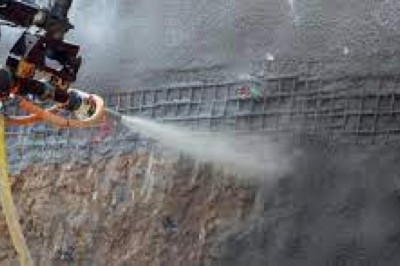views

There’s no doubt about it: the travel industry has suffered a setback since the start of the pandemic. But there’s plenty of reason to hope for travel and hospitality, especially with the potential for the metaverse just around the corner.
Many travel companies are already adopting VR and AR to help them differentiate their offerings, emphasize their position as high-quality service providers and stay ahead of the competition.
While virtual travel in the Metaverse is unlikely to replace the real thing, the Metaverse will certainly improve travel experiences in many ways.
How is the Metaverse Changing the Travel Industry?
The COVID-19 pandemic exposed one of the ways the tourism sector can be vulnerable, but there are others. For example, when public awareness of climate change grows and more action is needed, customers may choose to travel locally rather than travel internationally.
These issues highlight one of the most significant ways that the idea of metaverse tourism is changing the travel industry. The concept of interactive virtual worlds has the potential to change the way customers interact with other locations and, in some cases, to replace real travel without harming the industry.
Read More: What Is Metaverse: Use Cases And Benefits
What is the Tourism Industry?

The travel sector offers products and services related to travel. It is not limited to transport and other services directly related to the act of travelling from one place to another. This also extends to services such as providing food and beverages on the go and taking care of the customer’s needs after their arrival. There is a significant overlap between the travel and hospitality industries. Although they are closely related, the travel industry is distinct from the tourism industry.
The tourism industry is centred around providing services for travellers who are travelling to a specific destination and wish to explore and connect with that place. The travel industry is somewhat broader, covering all types of travel for many different purposes beyond the tourism industry. The travel industry includes airlines, rail and coach services, water transport, etc. And travel management includes accommodation and catering for passengers. Metaverse travel may soon be another feature of the industry.

Potential Benefits for Travel in the Metaverse
On the surface, it may appear that the metaverse could represent a threat to the travel industry. After all, if people can experience new places in virtual 3D space, they might not choose to travel physically. Yet it is unlikely that the metaverse could ever completely replace physical travel and become only a part of travel technology.
1) Inspire Tourism-Related Purchases
One of the major benefits of the metaverse tourism concept is that it can help tourists find inspiration. Interactive virtual reality experiences, for example, can reproduce real-world scenarios and provide travellers with a good picture of what to expect when visiting a specific location.
The same approach can be used for hotels and transportation, with virtual reality experiences helping potential guests understand what amenities the property will have or how long the trip will take. Finally, Metaverse can help travellers find inspiration and complete a booking or purchase.
2) Enhance the Booking Experience
In addition to inspiring, Metaverse Travel & Tourism Solutions has the potential to significantly improve booking processes by providing essential information that cannot be accurately presented in other ways. As a result, there is an increased likelihood of a consumer completing his/her booking journey instead of cancelling it.
For example, hotels may use virtual reality tours or digital avatars to allow consumers to walk around a realistic recreation of their facility, getting a feel for the size of the room and the facilities available. Meanwhile, travel agencies can use virtual reality tours to present customers with lifelong experiences of the destination they want to visit.
3) Increase Booking Volume
In the end, the ability Metaverse Tourist offers is their true price to improve overall booking volume during the booking process. It results from the combination of the two former elements.
Customers may first get the idea from virtual and augmented reality travel technology, but the real experience of booking hotels, travel, restaurant tables and other similar services is more enjoyable and informative as a tool to influence purchase decisions over time. and becomes useful. Feather.
Examples of the Metaverse’s Use in the Travel Industry
While the metaverse is still in its infancy, some travel companies are already taking advantage of the new technology.

Immersive Virtual Travelling – VR Tourism
Some organizations are already providing virtual 3D versions of real-life locations and locations. For example, you can now visit the Louvre Museum, Paris in VR. Virtual visitors can view exhibits, enjoy concerts, or even meet friends for a virtual stroll around the museum.
The metaverse may provide a way for people (who may not be able to travel physically) to explore the world, either as an alternative to travelling in person or as a way to prepare or as a way to prepare for an upcoming journey. In the form of Offering virtual tours and excursions through the Metaverse is one way the travel industry can benefit from this new technology.
Augmented Reality in Travel
Augmented Reality is different from Virtual Reality. Instead of being immersed in a virtual world, the virtual element is overlaid with the real world around you. A familiar example would be the game Pokémon Go, where a user sees Titanic monsters in the real world as seen by their phone’s camera.
In the context of Metaverse travel, augmented reality can provide prices and descriptions for a restaurant, historical information related to a building, train times and connections to a station, and more. This encourages travellers to fully engage with their location and provides additional shopping opportunities.
Facilitating Online Trade Shows and Expos
Trade shows, expos, and related events were negatively impacted by the COVID-19 epidemic; as a result, they had to be put online. These events share many of the same issues that the travel and tourism industry in general deal with, such as increased public awareness of climate change.
By enhancing the sense of immersion, metaverse travel and tourism technology can help enhance these online events. Events can be transported online, but social interactions that work best in person can also be replicated using avatars, virtual reality, or other techniques.
Virtual Theme Parks and Other Attractions
With COVID restrictions limiting travel and closing some destinations entirely, theme park fans are increasingly turning to virtual versions of their favourite rides and attractions. First-person video footage of rides and other theme-park experiences is certainly nothing new, but the Metaverse allows users to experience attractions in a whole new way.
For example, imagine that visitors are booking a virtual tour of the zoo, or taking a “ride” on a roller-coaster with no queues. Virtual attractions could be a new source of revenue for beleaguered resorts and theme parks at a time when visitors may be unable or unwilling to visit in person.
Blockchain Technology and Hospitality
Curious about blockchain technology? This recent innovation is set to change the way many people transact online. Blockchain technology is particularly relevant to the hospitality and travel industries, facilitating payments and offering new ways of providing tickets and identification.
Acting as a virtual public ledger, blockchain technology creates a permanent record of all transactions along with time stamps and other important data.
VR and the Travel Industry
From Metaverse travel to instant VR tours, virtual reality is already having a massive impact on the way people choose destinations, book and discover travel inspiration. With VR headsets becoming a common consumer item, VR is rapidly finding its way into the daily lives of many people.
Despite its roots in the gaming industry, virtual reality is becoming increasingly important for other sectors – travel in particular. To learn more about virtual hotel tours, virtual booking interfaces, VR excursions, and augmented reality.
Read More: How To Choose The Best Fit Travel Portal Development Company
What Does The Future Hold?
Although businesses are starting to see the potential of the metaverse, it will take time for it to really kick off. Furthermore, even if this belief takes root, it is unknown how people will react, especially when tourists want to experience the real aftermath of the pandemic. However, forecasts show that the metaverse has the potential to completely transform travel and tourism.
Virtual reality makes certain activities more accessible to individuals who are physically separated from events or places, as well as providing users with unique personalized experiences that will enhance their travel experience. Companies can increase their exposure and deliver memorable experiences while remaining competitive in the digital marketplace by creating immersive brand experiences.
It is important to note that the metaverse will not completely replace travel and tourism. If applied properly, this technology has the potential to complement reality by providing a comprehensive experience that allows individuals to make deeper connections to world culture and history while simultaneously making it more accessible.

How HashStudioz Will Help You With Metaverse in the Tourism Industry?
Since the internet, the metaverse is believed to be the most important technological advancement. This will have long-term effects on tourism as well as how people live, connect, and operate a business. To suit the new virtual global order, brands will need to reconsider their marketing and communication plans. But ultimately, the metaverse will help companies better understand their clients and engage in fruitful interactions with them.
If you want to use the metaverse in the tourism industry, get in touch with an AR VR app development company. Contact us With the help of HashStudioz, you can easily find the metaverse and fulfilled what you need to know about it for business.












